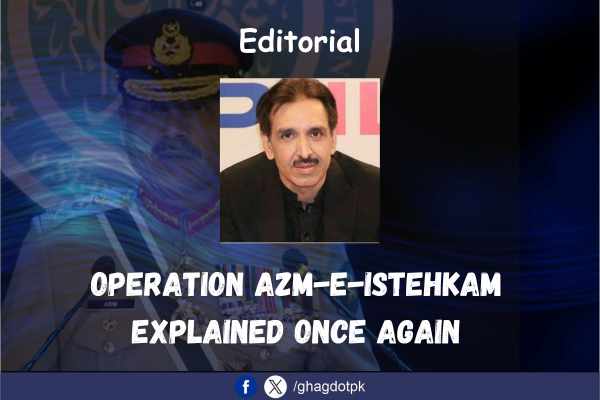The Chief of Army Staff General Asim Munir in his address to the country on Defence Day stated that the “resolve to stabilize” is to eliminate terrorism and extremism, as well as their linked activities, which are destabilizing Pakistan. He stated that no one will be displaced as a result of this operation, that digital terrorists spreading harmful propaganda should be deterred, and that Pakistan and its people’s safety and security will be guaranteed at all costs. He went on to say that the people have more trust and intimacy with the Pakistan Army than ever before and that the Pakistan Army is a well-organized national institution.
Previously, official ceremonies commemorating Defense Day were held in all provinces and major cities, with significant military, civil, and governmental leaders, including corps commanders, participating in large numbers to pay honor to those who sacrificed for the creation of peace. A big event was also held in Peshawar, with Corps Commander Peshawar serving as the chief guest and meeting the people, children, and troops of the army.
Hours before the ceremony, the Mohmand Rifles, stationed in Gholani, the Mohmand district headquarters, were targeted by suicide bombers and gunfire, but security forces repulsed and foiled the attack, while a gas firm was attacked in Karak that evening. This demonstrates that the security situation in Khyber Pakhtunkhwa is deteriorating, even though security forces killed 414 terrorists in 882 intelligence-based operations in various districts of the province during the first 8 months of the year.
Experts claim that in addition to religious and nationalist radicals, Khyber Pakhtunkhwa and Balochistan also deal with proxies from several significant nations, and that because these two provinces border Afghanistan, they are particularly vulnerable to terrorism. Apart from the fact that the Taliban government would continue to support the TTP and other groups after August 2021, these two provinces are also dealing with Bajwa governance problems.
In addition to the unclear policies of the Khyber Pakhtunkhwa government and political stakeholders, well-known analyst Adil Shahzeb claims that they are denied the attention and discussion of the mainstream media in these two significant provinces, with all of the media’s attention being directed toward these issues and cities, where the marketing and ratings of media companies profit.
According to Defense Analyst Dr. Akhtar Ali Shah, the security situation in Khyber Pakhtunkhwa is very complex and the situation in Afghanistan has had a big impact on it, but the recent wave of terrorism has increased after the former government released hundreds of thousands of people from jails and hideouts in Afghanistan and Pakistan and provided them with facilities in the name of negotiations.
Defense Analyst Dr. Akhtar Ali Shah says that although the security situation in Khyber Pakhtunkhwa is complicated and heavily influenced by events in Afghanistan, there has been a recent upsurge in terrorism following the former government’s release of hundreds of thousands of people from prisons; the hideouts in Afghanistan and Pakistan and provision of facilities in exchange for negotiations.
According to Professor Dr. Jamil Ahmed Chitrali, the ongoing situation needs to be seen in the context of changing regional and global priorities, being quite complex. Things are not as simple as some people think. According to him, all stakeholders in Pakistan, irrelevant of political differences and distances, need to focus on taking a joint action by coming on one page at least on issues related to the country’s security. Because Pakistan belongs to all of us and we all have a role to play in ensuring its security, stability and development.






